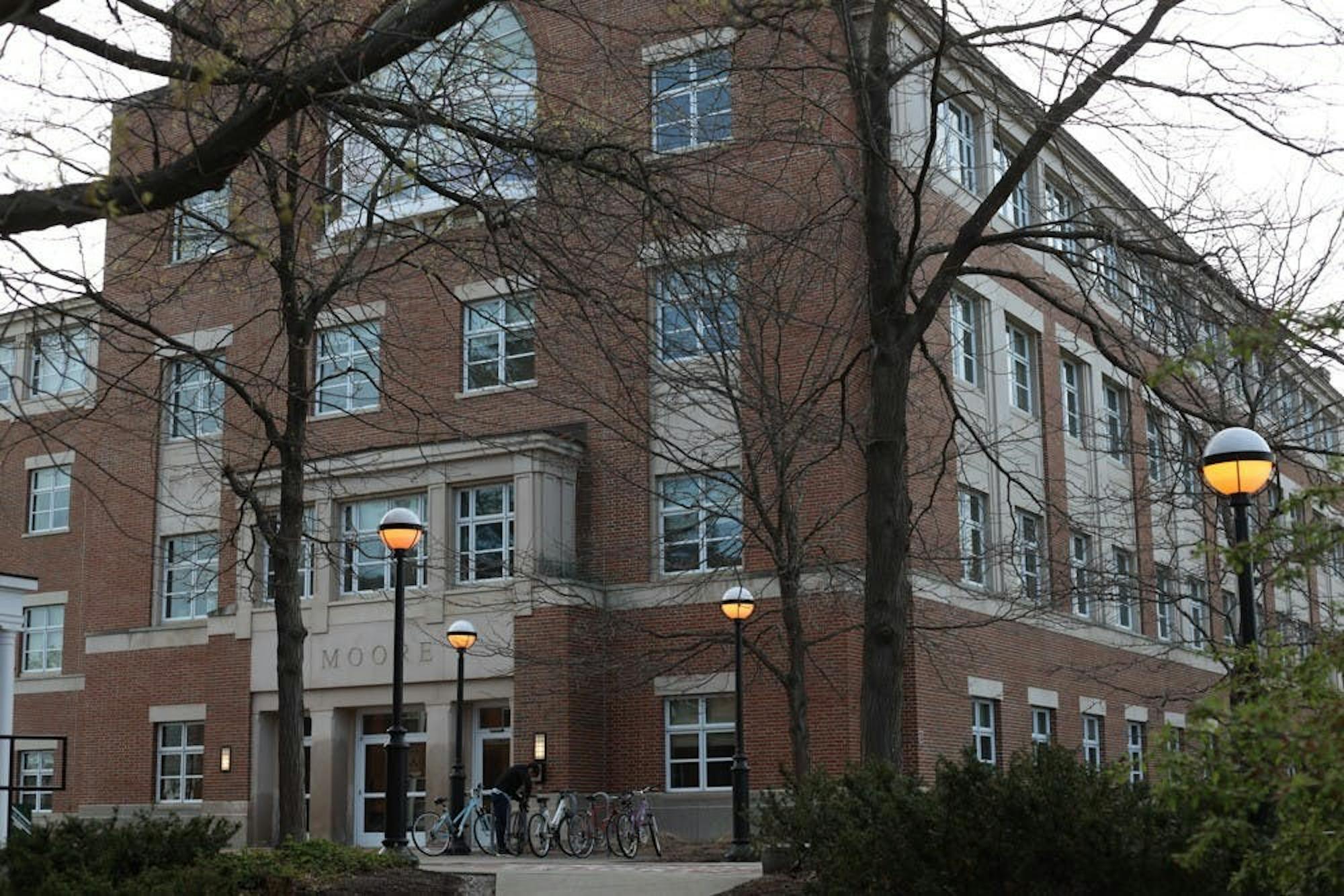On Jan. 24, the Hopkins Center for the Arts hosted “me too.” founder Tarana Burke, who delivered this year’s keynote speech for the College’s celebration of Martin Luther King Jr. Day.
The activist and author was introduced by College President Phil Hanlon and senior vice president and senior diversity officer Shontay Delalue, who moderated the fireside chat. The talk, which drew some 150 attendees and was livestreamed by another 120, began with Hanlon commenting on the theme of Dartmouth’s MLK celebration this year: “Building a Compassionate Community.”
“Over the past 10 years, as we’ve engaged in the work of building a compassionate community here at Dartmouth, I’ve watched as the energy and passion on our campus has magnified,” Hanlon said.
Delalue said that the scale of this year’s keynote speech was significantly larger compared to her first time attending an event commemorating MLK Day at the College last year, where the College was only able to host a small audience.
Delalue further examined the theme of this year’s speech, saying that “compassion comes when our truths are spoken, listened to and received by others so that healing can occur.” The theme of “healing” remained the core of the conversation between Delalue and Burke.
Burke commenced the keynote by discussing the importance of storytelling, saying that not everyone has equitable opportunities to express themselves — a prominent issue for "Black and Brown girls.”
“Our stories get cut off, our stories get muted, our stories get stolen, we’re told to swallow our stories,” Burke said.
In response to this lack of storytelling, Burke said she hopes to provide a platform for women from all backgrounds to express themselves, adding that “the most important person you have to tell your story to is yourself.”
Burke also discussed her understanding of Black feminism, which she defined as “making sure the people who have the least get first.” She recounted a story from her childhood in the Bronx, New York where an adult man smacked her. After Burke’s grandmother complained to the police, officers dismissed her claims and threatened to put Burke in jail for previously punching someone else in the face, she said.
She added that her understanding of Black feminism has been shaped by literature, the community in the Bronx and her mother’s generosity in caring for others.
Burke also discussed the significance of the “me too.” movement, which she said aims to promote “healing” and inspire “action.” Burke said that her goal is to ensure that “people who have experienced sexual violence have all the resources they need to also experience healing.”
Burke added that 12 million people tweeted “#MeToo” in the first 24 hours after the hashtag went viral on social media in 2017 — a sign of how prevalent sexual violence is — and that access to resources is critical in initiating the healing process.
In relation to “action,” Burke noted that many victims of sexual violence “have to live and work and learn in the same places where [they] were harmed … while watching people actively not care and do nothing about the harm that was caused.”
“We need legal interventions, cultural interventions, resource interventions … and part of our job is to push for those interventions,” Burke said.
Burke added that the conversation surrounding sexual violence began “almost 50 years” before the “me too.” movement itself, so it is important “not to lose sight of where the work is actually happening.”
Delalue concluded the conversation by drawing emphasis on “healing,” referring to comments that Burke made when participating in an event at another institution about “finding radical joy in the midst of painful experiences.” Burke added that journaling daily gave her a “spark” during difficult times, motivating her to curate a collection of pieces portraying vulnerability in the Black experience.
Tuck School of Business students Fiona Bowen ’18 Tu ’24 and Jessie Stein Tu ’24 said that going into the event, they were “excited” to hear Burke’s comments.
“What struck me most was that, as a white woman … this idea that we can’t understand [others’ experiences] is so true,” Stein said. “We have to stop placing an unfair burden of making [others] feel like they need to … steer us to make change.”
Bowen added that instead of solely focusing efforts on “changing the rules,” giving survivors more support can be meaningful.
“Even as rules change and are better enforced, there will still be people who are suffering at the hands of racism and sexism,” Bowen said.




